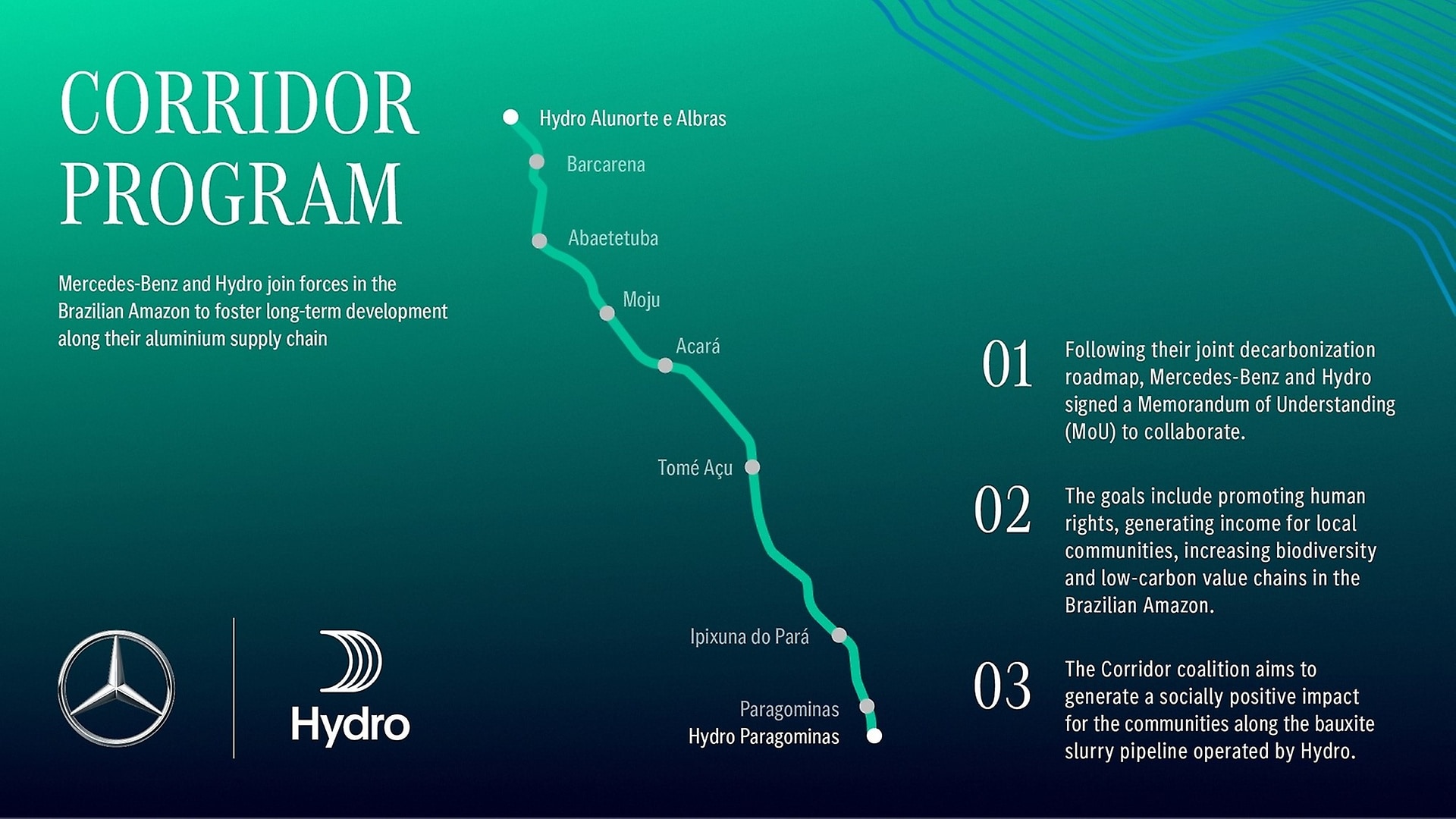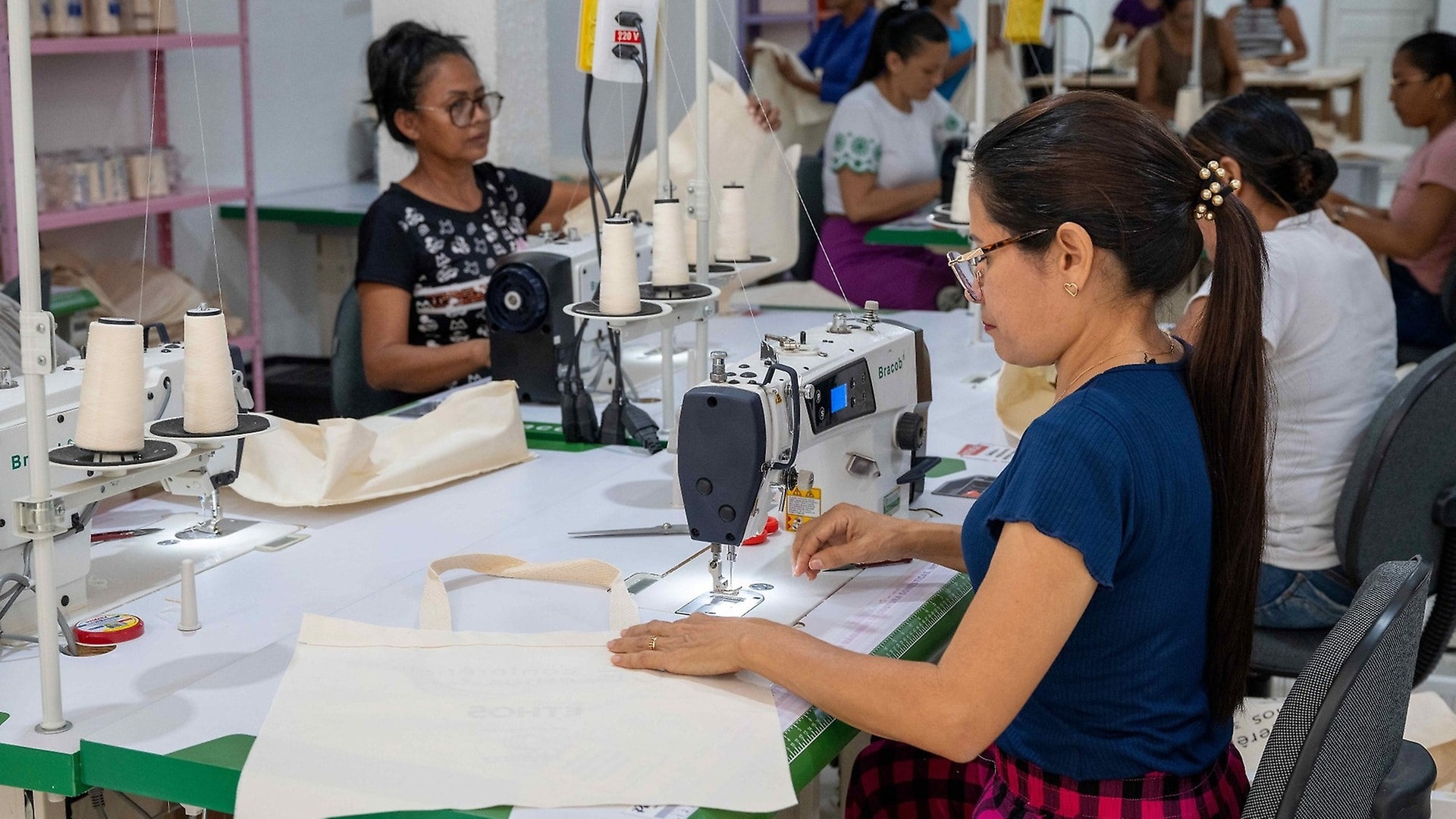September 24, 2024 – Mercedes-Benz and Hydro elevate their strategic partnership by enhancing the vertical integration of their aluminium supply chain and launching the long-term Corridor Program for a sustained development in the Amazon.
,xPosition=0,yPosition=0.5)
Mercedes-Benz and Hydro join forces in the Brazilian Amazon


,xPosition=0,yPosition=0)
,xPosition=0.5,yPosition=0)